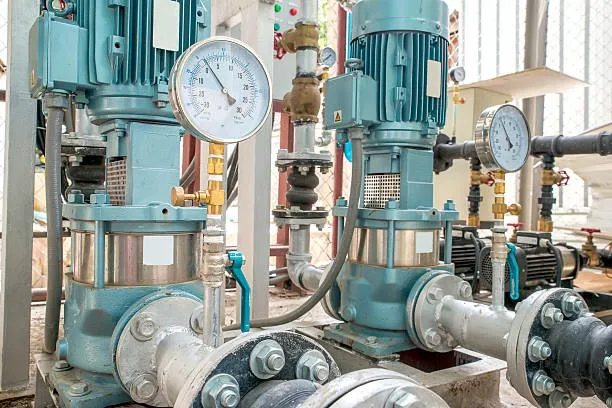
Boiler Tune-Up in Harrisburg, PA
Keeping your boiler tuned and running efficiently is essential for reliable winter comfort in Harrisburg, PA. With cold winters, high humidity from the Susquehanna River, and many homes using older hydronic systems, a professional boiler tune-up protects your investment, reduces fuel use, and lowers the chance of midseason breakdowns.
Why a boiler tune-up matters in Harrisburg, PA
Harrisburg winters are cold and often long. Boilers face heavy seasonal demand, which highlights existing wear, corrosion, and efficiency losses. Older row homes and historic properties in the area frequently have cast iron or steam systems that require regular attention. A tune-up:
- Restores safe, efficient combustion for natural gas and oil boilers
- Reduces the risk of emergency failures during extreme cold
- Improves heat distribution in older piping and radiator systems
- Helps prevent carbon monoxide and flue-venting problems caused by soot or blocked vents
Common boiler types and issues in Harrisburg homes
- Natural gas boilers: Most common in modern homes; issues include burner sooting, pilot or ignition faults, and clogged condensate traps in condensing models.
- Oil-fired boilers: Found in some older properties; common problems are dirty burners, nozzle wear, and increased soot buildup.
- Condensing boilers: High efficiency but sensitive to condensate drain and pH issues.
- Steam boilers: Require regular steam trap and water level control checks; air venting and radiator balancing are frequent needs.
Typical problems a tune-up addresses:
- Reduced heat output or uneven heating
- Yellow or sooty burner flame
- Visible rust, corrosion, or water leaks
- Frequent short cycling or ignition failures
- Strange noises from expansion or trapped air in radiators
- Elevated fuel bills that signal declining efficiency
What a professional Boiler Tune-Up includes
A full tune-up is a systematic inspection, cleaning, adjustment, and safety check. Here are the step-by-step tasks technicians perform:
Initial system inspection
- Visual check of boiler exterior, piping, vents, and flue for leaks, corrosion, or blockages
- Confirm boiler type, age, and any manufacturer service requirements
Shut-down and safe start procedures
- Turn the system off and isolate fuel supply as needed
- Allow components to cool to a safe working temperature
Clean heat exchangers and combustion chamber
- Remove soot and scale from heat exchanger surfaces for better heat transfer
- Clean burners and combustion chamber for consistent flame and efficiency
Check burners and ignition system
- Inspect burner jets/nozzles, electrodes, and ignition components
- Adjust or replace worn parts to ensure reliable ignition and combustion
Verify combustion efficiency and emissions
- Use a combustion analyzer to measure CO, CO2, O2, and stack temperature
- Adjust air-to-fuel ratio and draft to achieve optimal combustion and lower emissions
Inspect and test safety devices
- Test pressure relief valve, low-water cutoff, high-limit controls, and operating pressure
- Verify proper function of the thermostat and main safety interlocks
Examine venting and flue draft
- Check chimney or venting for obstructions or leaks
- Measure draft and ensure combustion gases evacuate safely from the home
Adjust controls and system settings
- Calibrate thermostat, aquastat, and control setpoints for efficiency and comfort
- Check zoning valves, circulator pumps, and expansion tank pressures
Water treatment and system integrity checks
- Test boiler water quality, look for sediment, and inspect for corrosion
- Advise on drain and flush or water treatment if required for longevity
System-specific tasks
- Bleed radiators and air vents for hot-water systems
- Inspect steam traps and main vents on steam systems
Final performance run and report
- Run system under normal conditions and recheck combustion readings
- Provide a written service report summarizing findings, any repairs made, recommended repairs, and efficiency data
What the service report includes
A good tune-up ends with a clear service report that documents:
- Combustion analysis results before and after adjustments
- Safety check outcomes and tested controls
- Parts replaced or cleaned
- Observed issues that need future attention
- Recommended maintenance frequency and efficiency improvement actions
This report gives homeowners a tangible record for safety, home resale, and warranty compliance.
Benefits of regular boiler tune-ups
- Improved efficiency and lower energy bills: Clean heat exchangers and properly adjusted burners return lost efficiency.
- Fewer breakdowns and longer equipment life: Early detection of worn parts prevents catastrophic failures.
- Safer operation: Combustion checks and venting inspections reduce carbon monoxide risk.
- Better comfort and reliability during Harrisburg winters: Balanced systems and properly bled radiators provide steadier home temperatures.
- Preservation of older systems: For historic homes, careful maintenance keeps legacy boilers functional and efficient.
Recommended frequency for Harrisburg homes
- Annual tune-up: Recommended for most systems, performed before the heating season (late summer or early fall) to catch issues before peak use.
- Condensing boilers: Still annual, but pay special attention to condensate lines and acidity.
- Older or problem systems: Twice yearly inspections may be beneficial if there have been frequent issues or if the boiler is over 15 years old.
Quick maintenance tips for homeowners between tune-ups
- Check visible pipes and the boiler area for leaks or unusual puddles.
- Monitor your fuel usage and heating bills; sudden increases can indicate trouble.
- Keep the boiler room clear of debris and stored items to maintain airflow.
- For hot-water systems, bleed radiators if cold spots develop.
- Install a carbon monoxide alarm near sleeping areas and on each floor.
Maintaining your boiler through a professional tune-up ensures safer, more efficient heating all winter long. Proper combustion testing, thorough cleaning, and safety verification protect your home and help avoid costly emergency repairs during Harrisburg's coldest months.


Enjoy flexible financing options that make upgrading or repairing your HVAC system easy and budget-friendly.










